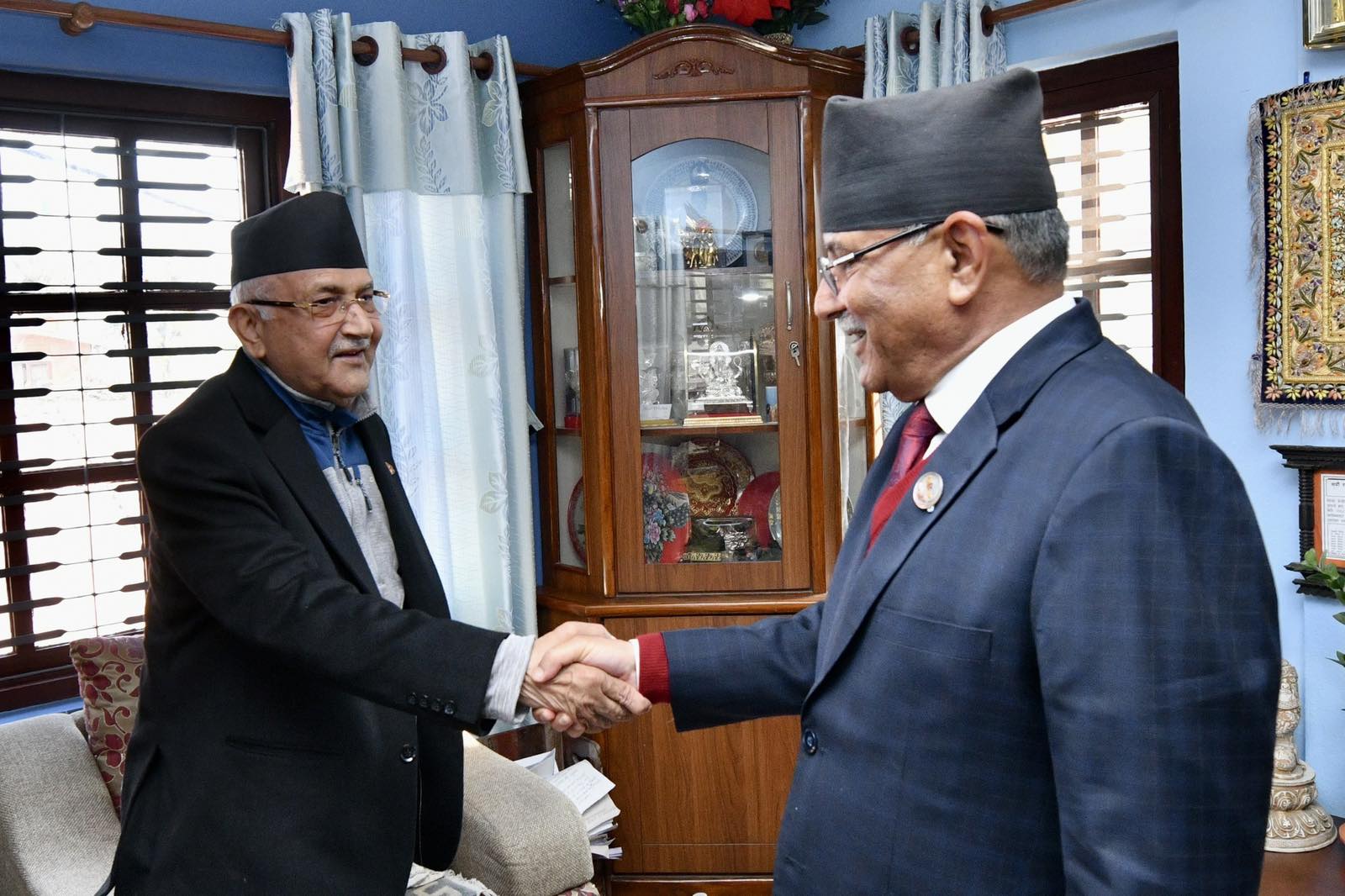KATHMANDU: Perhaps Nepal’s outgoing Prime Minister Sher Bahadur Deuba was clueless about Pushpa Kamal Dahal Prachanda’s clandestine move that paved his way to becoming the country’s 44th Prime Minister.
Prachanda’s appointment as the Prime Minister was unexpected but planned, say some observers, since his move was abrupt and frantic.
Meanwhile, CPN-UML Chairman KP Oli was waiting for Prachanda at his Balkot residence to offer the latter the post of Prime Minister.
UML Chair and former Prime Minister, Oli, is believed to be a pro-China leader and speculations are that China not only played cards but succeeded in bringing the left political parties together yet again.
In fact, China was also the first country to congratulate Prachanda for being appointed the Prime Minister.
Even though the Chinese Embassy in Kathmandu denied that its Charge d’Affairs Wang Xi met political leaders, Nepali Congress party insiders say Prachanda, a vocal critic of Oli, could have come under Chinese pressure to meet Oli to make an alliance.
The Maoist Center, which is the third largest party in the House of Representatives (HoR) with 32 seats, succeeded in leading a coalition government backed by CPN-UML, Rastriya Swatantra Party, Rastriya Prajatantra Party, Janamat Party, Janata Samajwadi Party and Unmukti Party and giving Prachanda another chance to serve his third term as the country’s Prime Minister.
Communist parties are said to be sensitive toward China’s interests and maintain smooth relations with Nepal’s northern neighbor.
China’s Foreign Ministry Spokesperson Mao Ning said that China is ready to expand bilateral cooperation under the Belt and Road Initiative (BRI) during the tenure of Prime Minister Pushpa Kamal Dahal Prachanda substantiates this.
Moreover, congratulating Prachanda the day after his appointment as Prime Minister, the Chinese Ministry of Foreign Affairs expressed the hope that the project under BRI would continue during Prachanda’s tenure.
An agreement on BRI was signed between Nepal and China when Prachanda was the Prime Minister in May 2017.
This becomes evident that China has had a hand in bringing the Left forces together in Nepal with an aim to fulfill its vested interest.
Consider this: “We are ready to expand and deepen friendly exchanges and cooperation with the new government of Nepal, and advance high-quality BRI,” Mao said when asked about Prachanda becoming prime minister.
She also said this will “give a new momentum to our strategic cooperative partnership and development for the benefit of the people of the two countries.”
When high-level development projects between the two countries could not proceed under BRI in the past, China is confident that this would continue during Prachanda’s premiership.
But this time, both China’s interest and political leaders’ personal interests played a vital role in forming a coalition government that includes leftist forces, a pro-monarchy party, a centrist party, and once a separatist party.
This clearly indicates that Nepal’s politics has lost theoretical, moral and ideological principles.
A political analyst, who did not want to be named said, “Although the current structure looks like a coalition formed under Chinese pressure and efforts to keep the nationalists and leftist forces together, in reality, it is a combination of dishonesty, fraud, lies and deception.”
According to him, China was active since the tenure of Yanqi Hou, former Ambassador to Nepal, to bring all left forces together.
“This time, too, China did not leave any stone unturned to bring them together,” a Nepali Congress leader said.
It also should be noted that the Chinese Embassy was the first to congratulate Prachanda following his appointment as the Prime Minister on Sunday evening.
Another interesting episode is the initiative taken by Maoist leader Barsaman Pun, who returned from China recently after treatment, had intensified his activities for Left Alliance.
Soon after his return, Pun intensified meetings to form a government together with the UML and make Prachanda the Prime Minister.
Earlier, Maoist General Secretary Dev Gurung, Narayankaji Shrestha and others also were on the move to forge left unity.









Comment